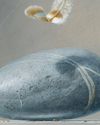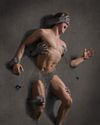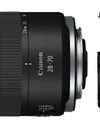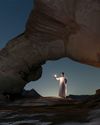
If you've outgrown your current DSLR or you want to photograph action or shoot in more challenging conditions, the EOS 90D could be all the camera you need. In terms of specification and technology, it's one of the most well rounded of Canon's cameras, let alone its DSLRs.
With its scintillating blend of speed (10 frames per second) and resolution (32.5MP), this is a camera that's right at home capturing detailed, action-packed wildlife and sports sequences. The 1.6x crop factor of the APS-C sensor is also beneficial when you are unable to physically get close to athletes or animals. For example, a 400mm lens attached to the EOS 90D (or any camera with an APS-C sensor) gives the equivalent view of a 640mm lens (400mm x 1.6) on a full-frame DSLR. It's like having an extender built into the camera.
As well as the hike in headline specification that you get when moving from one of the beginner DSLRs to an advanced camera such as the EOS 90D, you're also buying better build quality and refinements in handling and operation. The optical viewfinder shows 100% of the scene captured by the sensor, for instance, whereas beginner DSLRs tend to show a slightly cropped image. There are more physical controls and dials, including a multi-controller joystick for selecting the AF point directly, a rear quick control dial and a mode dial lock button to prevent accidental operation.
The textured rubber grip provides more assured handling when you're shooting in inclement conditions, while the camera is also weather sealed, adding peace of mind in typical British weather.
この記事は PhotoPlus : The Canon Magazine の June 2022 版に掲載されています。
7 日間の Magzter GOLD 無料トライアルを開始して、何千もの厳選されたプレミアム ストーリー、9,000 以上の雑誌や新聞にアクセスしてください。
すでに購読者です ? サインイン
この記事は PhotoPlus : The Canon Magazine の June 2022 版に掲載されています。
7 日間の Magzter GOLD 無料トライアルを開始して、何千もの厳選されたプレミアム ストーリー、9,000 以上の雑誌や新聞にアクセスしてください。
すでに購読者です? サインイン

The Art of Copying Art - James Paterson shows you how to use your Canon gear to capture artwork and paintings the right way with simple camera and lighting skills
Whether you want to capture a painting like the above, digitise old prints or reproduce any kind of canvas, there's real skill in capturing artwork with your camera. Not only do you need the colours to be accurate, you also need to master the spread, angle and quality of the light to minimise glare and show the work at its best.This painting by the artist Bryan Hanlon has a wonderfully subtle colour palette. To reproduce the painting in print and digital form, it needs to be captured in the right way.

Fright night
Canon photographer and digital artist Alexander loves to craft incredible fantasy scenes with a spooky horror twist

Sharpen your shots with DPP
Sharpening a digital image also increases contrast at the edge of details

CANON ImagePrograf PRO-1100
Deeper blacks, better bronzing, greater lifespan and 5G Wi-Fi -Canon's new printer is full of new tech, says

Canon's new 'kit lens' is actually a half-price f/2.8 trinity lens!
The Canon RF 28-70mm F2.8 IS STM lacks a red ring, but borrows premium features from its L-series siblings

DREW GIBSON
Pro motorsports photographer Drew on why he hasn't (yet) switched to Canon's mirrorless system, why old-school techniques can be the most reliable, and the lessons learned from more than a decade shooting the world's biggest car brands

Up in smoke
Make a smoky shape in Affinity Photo and get to grips with the amazing Liquify Persona under the guidance of James Paterson

Expand your creativity with Generative Fill
Photoshop's Al-powered feature brings revolutionary new tools to image editing. James Paterson reveals all...

Turn your images into vintage postcards
Wish you were here? Sean McCormack explains how you can give your summer photographs a vintage postcard look

The Angel Malibu
Light painting an American movie producer in the Wadi Rum Desert in Jordan was a highly unlikely evening out for David!